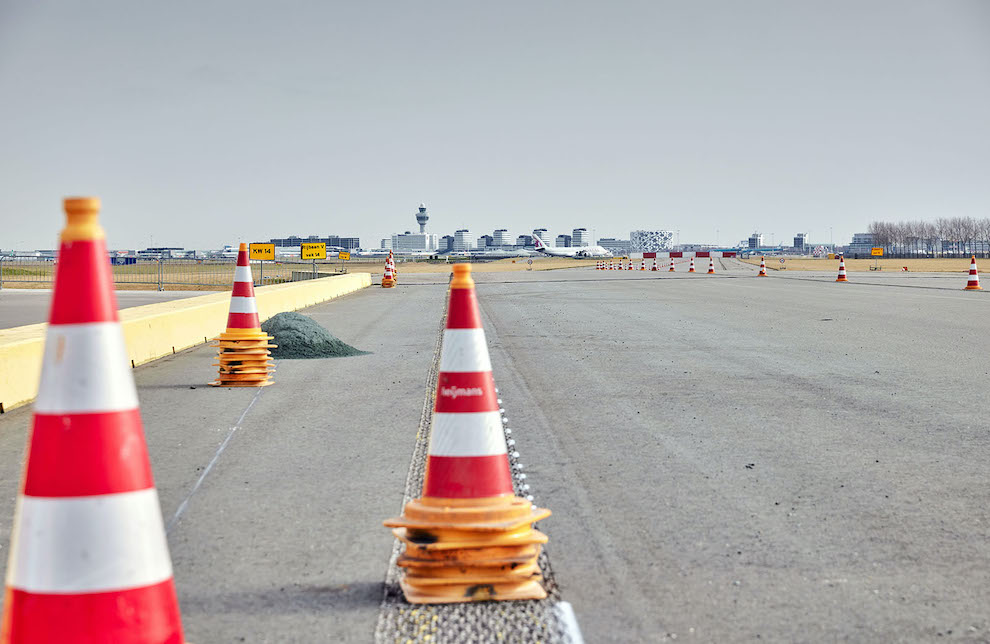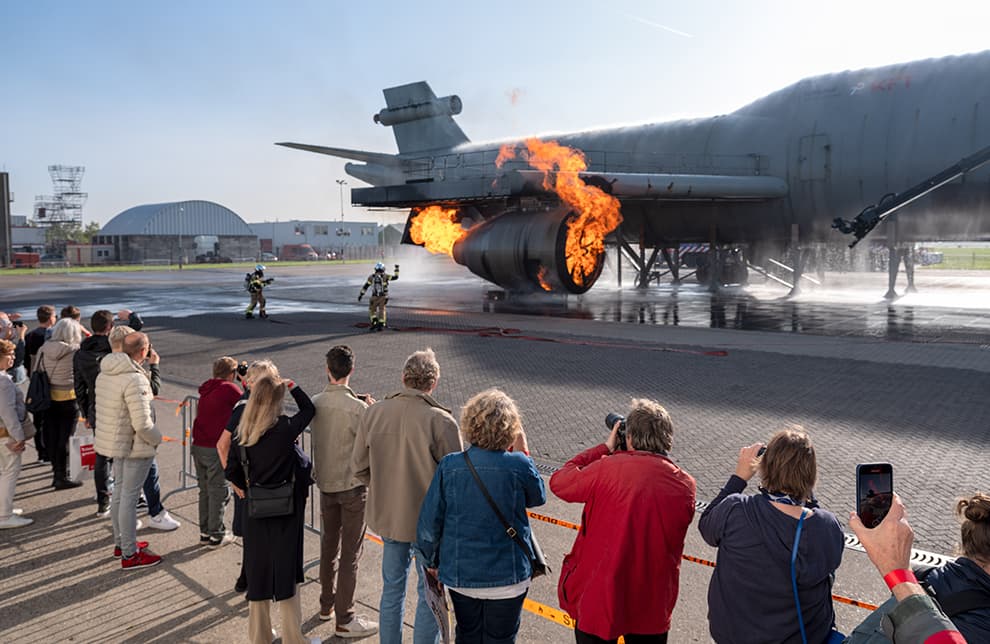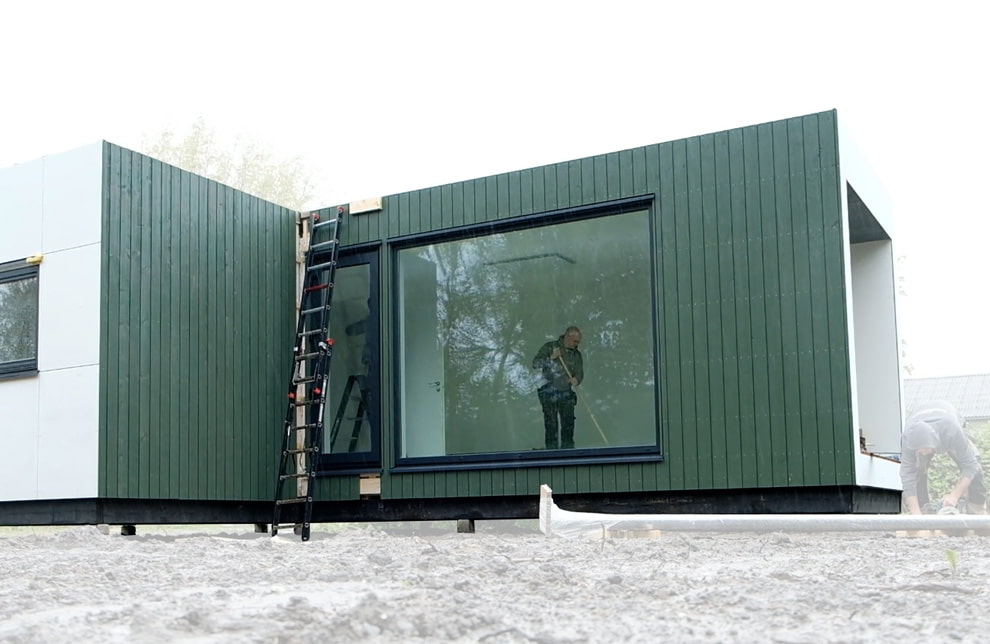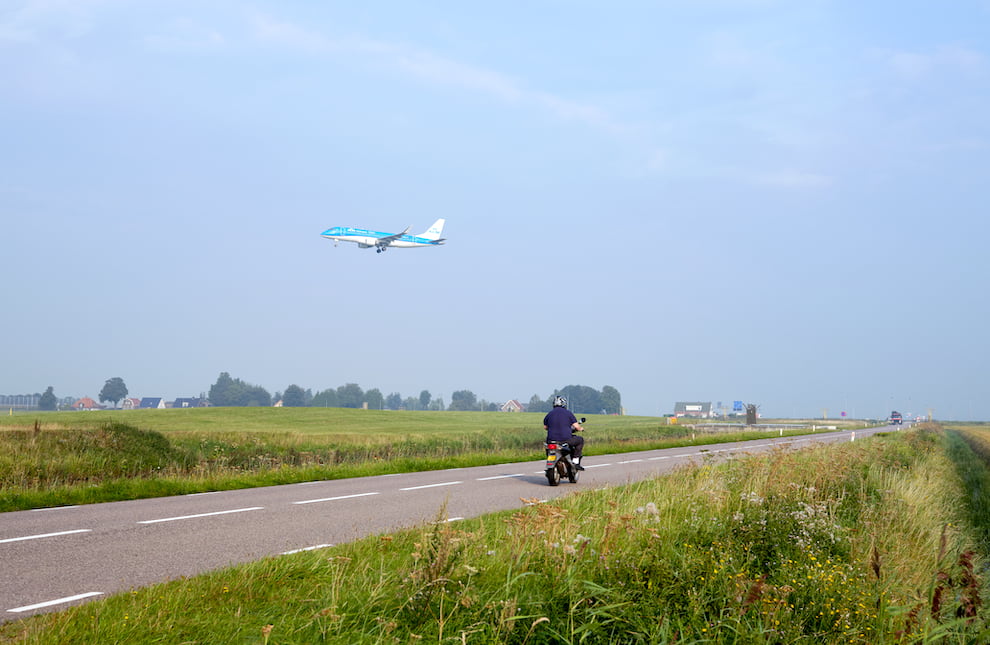Planning maintenance with our neighbours in mind
When a runway undergoes maintenance, air traffic can sometimes be affected. Especially at an airport like Schiphol, which has six runways facing various wind directions so that it’s almost always possible to take off and land. That’s why the planning of runway maintenance is so important. We strive to do it as meticulously as possible and in cooperation with sector partners so as to limit the chances of delays and minimise nuisance experienced by our neighbours.

Short-term, standard and major maintenance
There are three kinds of runway maintenance at Schiphol involving different turnaround times and types of works.
- Short-term maintenance lasts for one night or part of a day and takes place every eight weeks, with each runway undergoing this type of maintenance six to seven times per year. We check the runway and carry out minor repairs, including to the asphalt. We also replace lights, remove rubber left behind by aircraft tires, mow the grass and remove weeds from around the runway.
- Standard maintenance lasts one to one and a half weeks and takes place once a year on every runway. During this period of maintenance, the runway is unavailable to air traffic for at least a week. Standard maintenance involves working on the asphalt, lighting, cables, pipes, electricity supply, drainage, markings and control systems. The to-do list also includes mowing the grass and removing rubber.
- Major maintenance lasts six to seven weeks, or even ten to sixteen weeks, and takes place on each runway every seven to eight years. During the 6 to 7 week maintenance we replace the parts of the runway that are used intensively and therefore wear out faster. This includes the areas where aircraft always land. We do this to keep the runway in good condition until the next period of major maintenance. When the 10 to 16 week maintenance comes around, the whole runway is renewed. The runways therefore undergo a 6 to 7 week period of major maintenance, followed by a 10 to 16 week period of maintenance seven to eight years later.
Runway maintenance schedule
Every year we present the schedule for standard and major maintenance. We take the consequences for air traffic and therefore the local community into account when planning the maintenance. For example, the summer sees a lot of air traffic and our neighbours spend more time outside. This makes it an undesirable time for runway maintenance as it will lead to more disturbance. And in the middle of winter the weather conditions can get in the way of the maintenance works. Frost, cold weather and rain can all lead to delays. We therefore try to do runway maintenance during the early spring and autumn.
Runway maintenance strategy
Our runway maintenance strategy takes the following into account:
- Short turnaround times, so that the runways can be deployed again as soon as possible.
- Combining works, so that we can work on the runway and the adjacent taxiway at the same time, for example.
- Major maintenance in quieter periods, so that there is relatively less air traffic using the other runways during the long maintenance period. In these quieter periods (at the start and end of the year) there is a greater chance of experiencing weather conditions that are less favourable for runway maintenance. That’s why the works can sometimes take a bit longer than expected.
Precisely when the runway maintenance takes place is coordinated per runway with all parties in the sector. By taking the points listed above into consideration, we can limit the disturbances caused by runway maintenance. That’s also why the improvement of runway maintenance strategy and planning was included as one of the nuisance-reducing measures on minderhinderschiphol.nl (website available in Dutch only).
Read the previous blogs
-
Neighbour Days 2023 full of info and spectacle
Published on:An information market, the snow fleet in its full glory, and an impressive firefighter drill. The 2023 Schiphol Neighbour Days were a huge success.

-
DeNoize tests smart window tech near Schiphol
Published on:DeNoize has constructed a pilot house near Schiphol to test their pioneering smart window technology that can reduce noise nuisance experienced by residents.

-
BAS, for questions & complaints about air traffic
Published on:The Local Community Contact Centre (Bewoners Aanspreekpunt Schiphol, aka BAS) is there to help answer your questions and to collect complaints about nuisance.
